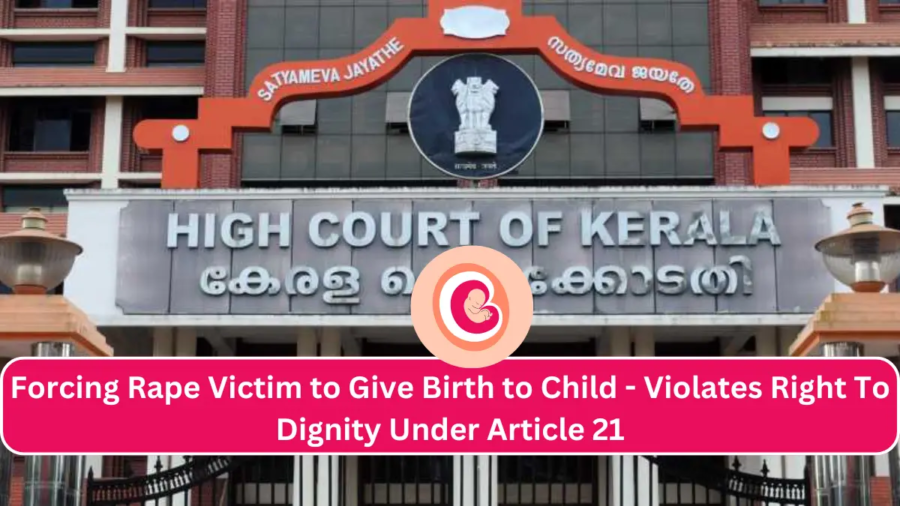Facts of the Case:
The Kerala High Court received an application from a sixteen-year-old rape victim who was studying in standard 11th grade, asking for permission to end her pregnancy before it reached 28 weeks gestation. The sexual abuse by her partner, which resulted in her pregnancy, a criminal case was brought against him under the Scheduled Castes and Scheduled Tribes (Prevention of Atrocities) Act, the Protection of Children from Sexual Offences (POCSO) Act, 2019, and other sections of the Indian Penal Code.
Petitioner’s Argument:
The petitioner, represented by counsel, argued for the termination of the pregnancy in the best interest of the minor victim’s physical and mental well-being.
Court’s Observations:
The Court reviewed the development of abortion legislation in India, pointing out that the Medical Termination of Pregnancy Act, 1971, which was passed in response to the Shantilal Shah Committee’s recommendations, legalized safe abortions. In 2021, the MTP Act was modified to allow abortions to last up to 24 weeks for specific groups of women, including those who have experienced sexual assault.
The Court underlined that women have a fundamental right under Article 21 of the Constitution to make autonomous decisions about their own bodies and reproductive processes. The Supreme Court’s rulings supporting reproductive choice as a necessary component of individual liberty were cited. Notwithstanding the restrictions imposed by the MTP Act, the High Court is empowered to approve terminations for longer periods of time than the 24-week maximum under Article 226.
The victim of rape-induced pregnancy suffered from severe psychological trauma, which the court highlighted. The pregnancy was considered involuntary and distressing. It also mentioned the victim’s socioeconomic status, highlighting the importance of showing compassion.
Court’s Decision:
The victim’s young age, and the abuse she went through, her possible social isolation, and any psychological trauma she might experience were among the factors that led the Court to approve the pregnancy termination. The court directed that the State would oversee offering the required medical care and support in accordance with the Juvenile Justice Act if the fetus lived.
As a result, the petition was dismissed, and the minor victim’s best interests were served by permitting the pregnancy termination.
– By Anaida Khan Pursuing 4th year of BALLB (Hons.) from Dharmashashtra National Law University, Jabalpur.
 Cart is empty
Cart is empty 

